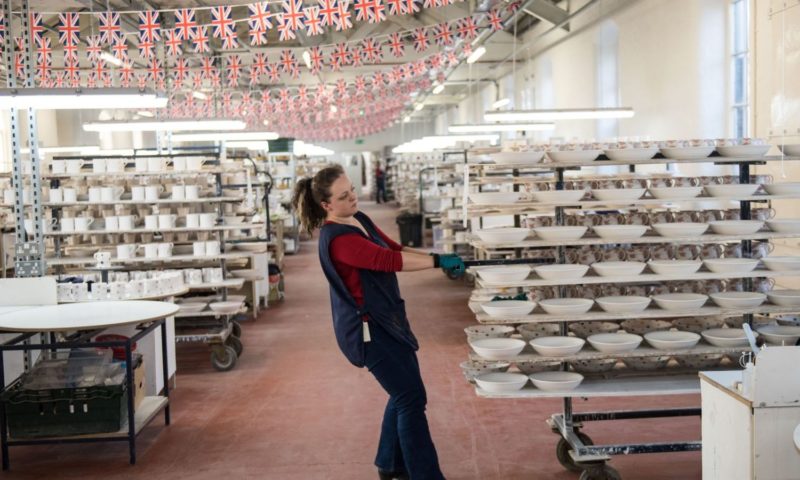The UK Manufacturing Purchasing Managers’ Index survey said there was a ‘clear risk’ of UK manufacturing going into recession.
British factories stockpiled goods in January at the fastest rate in 30 years, as they count down towards a potentially chaotic Brexit, an industry survey shows.
The IHS Markit/CIPS UK Manufacturing Purchasing Managers’ Index (PMI) also pointed to pessimism setting in across the sector as saw factory output and new orders grew by the smallest amount since July 2016.
The survey also noted a drop in employment for only the second time in the past two-and-a-half years.
British factories cut jobs slightly as work backlogs shrank at a faster pace in January, reflecting Brexit worries and weakening growth in continental Europe.
Sterling slipped on news that the PMI fell to 52.8 from 54.2 in December to a three-month low, falling below the 53.5 consensus forecast by economists.
Sterling dropped 0.3% 1.3062 against the dollar after the index figures were released.
While the UK readings compared better with manufacturing in France and Germany, survey compiler IHS Markit said the performance of British factories was driven by a surge in demand for stockpiling materials ahead of Brexit.
James Smith, economist at ING said: “The fact that there is still at least some positive growth is almost certainly down to the biggest reading for inventory building in the survey’s 27-year history.
“After all, we are so close to Brexit day and an economically disruptive ‘hard’ Brexit remains firmly on the table.”
Manufacturers and investors alike have been urging the UK government to ensure an orderly exit from the EU, as figures out this week showed investment in Britain’s car industry halved last year.
“The underlying trends in output and new orders remained lacklustre at best,” said Rob Dobson, director at IHS Markit.
The industry data firm said there was a “clear risk” that the manufacturing sector, which accounts for 10% of UK economic output, could go into recession.
Export orders were flat, the PMI showed, reflecting a slowdown in the global economy.
Input costs increased at the slowest pace since May 2016, the survey showed, giving British manufacturers a rare moment of optimism amongst the slowdown trend.

